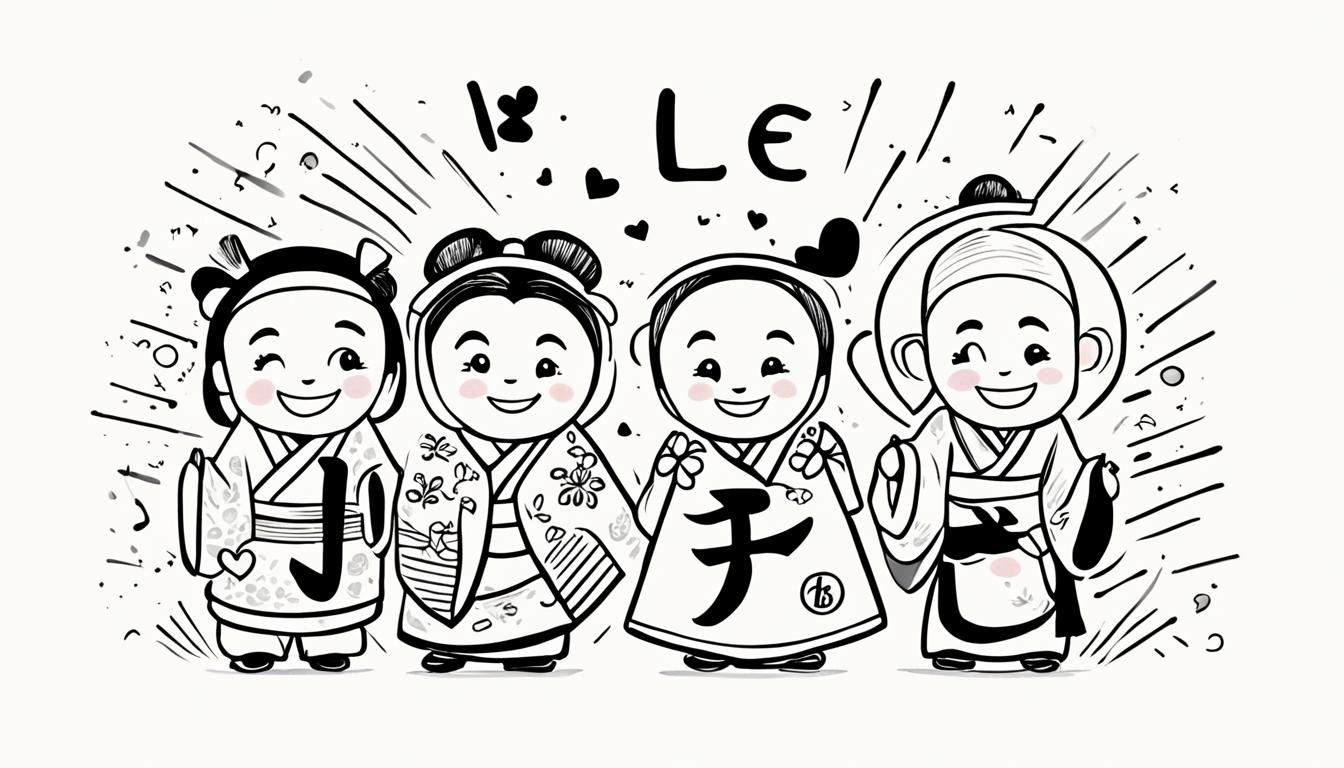Expressing love in different languages adds depth and beauty to our relationships. If you’re interested in understanding how to say “I love you” in Japanese, this quick guide will help you navigate the nuances of the Japanese language and culture.
Japanese culture is known for its subtlety when it comes to expressing love. While actions often speak louder than words in Japanese relationships, there are several phrases that can convey affectionate feelings. In this guide, we will explore the meaning, grammar, pronunciation, and cultural usage of these phrases.
Whether you’re learning Japanese or simply want to impress a loved one, this guide will equip you with the necessary knowledge to express your feelings accurately and respectfully through the Japanese language.
Expressing Love in Japanese Culture
In Japanese culture, expressing love verbally is not as common as in English or Western cultures. Instead, love is often conveyed through actions rather than words. Public displays of affection, such as hugging or kissing, are also not as prevalent in Japan compared to other countries.
However, it is still possible to directly express your love in Japanese, albeit with consideration for cultural norms. When expressing love in Japanese, it is important to understand the cultural background and context. The Japanese language provides several ways to express love, each with its own nuances and levels of formality.
While saying “I love you” in English is straightforward, Japanese expressions of love tend to be more subtle and indirect. This is because Japanese culture values modesty and humility. Instead of explicitly stating “I love you,” affection is often demonstrated through thoughtful gestures, acts of kindness, and spending quality time together.
When expressing love in Japanese, it is crucial to understand the appropriate use of language based on the context and relationship. Different phrases, such as 愛してる (ai shiteru), 好きだよ (suki da yo), 大好きだよ (daisuki da yo), and 愛してます (ai shitemasu), carry varying levels of intensity and should be used accordingly.
By respecting and appreciating the nuances of Japanese culture, you can effectively and appropriately express your love in Japanese and deepen your connection with your loved ones.
Different Ways to Say “I Love You” in Japanese

When it comes to expressing love in Japanese, there are several phrases that can be used to convey this heartfelt message. Each phrase carries its own nuances and level of intensity, allowing you to choose the most appropriate one based on your relationship and the context. Let’s explore some of the different ways to say “I love you” in Japanese.
1. 愛してる (ai shiteru)
This phrase, 愛してる (ai shiteru), is the most direct and serious way to express “I love you” in Japanese. It carries a deep and profound meaning, making it suitable for romantic relationships and serious commitments.
2. 好きだよ (suki da yo)
Another common phrase to express love is 好きだよ (suki da yo). This phrase conveys a sense of affection and fondness, and it is often used in close relationships and friendships. It is less intense than 愛してる but still carries a significant meaning.
3. 大好きだよ (daisuki da yo)
For a stronger expression of love, 大好きだよ (daisuki da yo) can be used. This phrase amplifies the level of affection and devotion, indicating a deep and strong emotional attachment. It is commonly used between romantic partners or close family members.
Here is a table summarizing the different phrases for saying “I love you” in Japanese:
| Phrase | Level of Intensity | Usage |
|---|---|---|
| 愛してる (ai shiteru) | High | Romantic relationships, serious commitments |
| 好きだよ (suki da yo) | Moderate | Close relationships, friendships |
| 大好きだよ (daisuki da yo) | Strong | Romantic partners, close family members |
By understanding the nuances of these phrases, you can express your love in Japanese in a way that aligns with your feelings and the nature of your relationship.
Cultural Considerations and Common Phrases for Expressing Affection
In Japanese culture, expressing love is often done through actions rather than words. Non-verbal gestures and acts of kindness hold significant meaning and are highly valued. It’s essential to understand that the Japanese language and culture prioritize indirect expressions of affection.
When expressing love in Japanese, consider the level of formality and choose the appropriate phrases and expressions accordingly. Politeness and familiarity play a crucial role in determining the appropriate language to use. It’s important to strike the right balance in expressing your emotions while respecting the cultural norms.
Here are some common phrases for expressing affection in Japanese:
| Phrase | Meaning |
|---|---|
| すごく好き (sugoku suki) | I really like you |
| 大好きです (daisuki desu) | I love you (polite) |
These phrases convey varying levels of intensity and can be used in different relationships and contexts. It’s important to choose the right phrase that aligns with the level of familiarity and politeness required for the situation.
Remember, expressing love in Japanese goes beyond words. Showing your affection through thoughtful actions and understanding the cultural context will help strengthen your bond with your loved ones.
Using Japanese Love Phrases in Relationships and Communication
When it comes to expressing love in Japanese, understanding the context and level of formality is crucial. The phrases discussed in this Japanese typing tutorial can be used to convey your feelings to a romantic partner or someone you deeply care about. However, it’s important to note that these phrases are not commonly used in everyday conversations.
It’s always a good idea to gauge the reaction of the person you’re communicating with and be open about your feelings. By doing so, you can ensure that your words are understood and received in the intended way.
While these phrases may not be used frequently in daily interactions, they hold significant meaning and should be used with caution. The Japanese language typing guide provided in this article offers you valuable insights into expressing love in a unique cultural context. By using these love phrases appropriately, you can deepen your connections and create a more meaningful connection with your loved ones.

